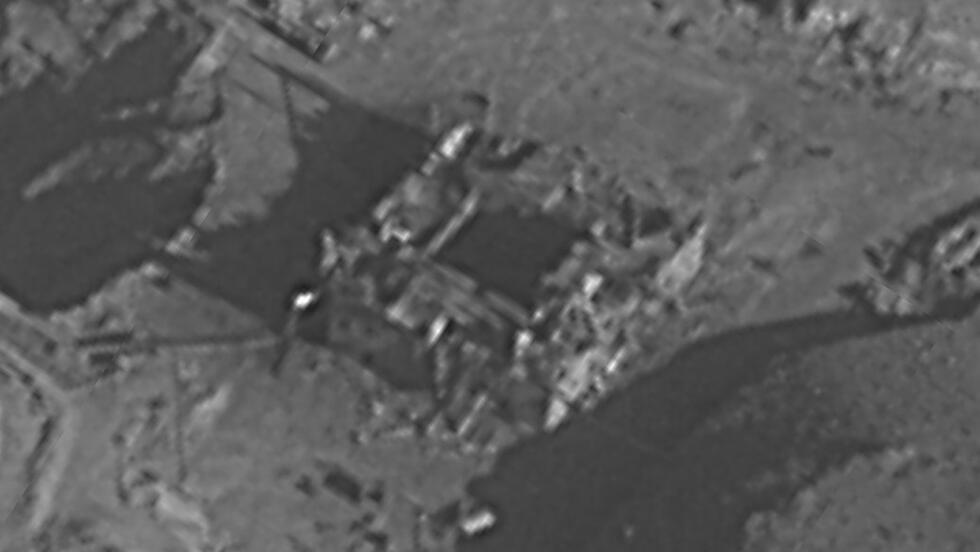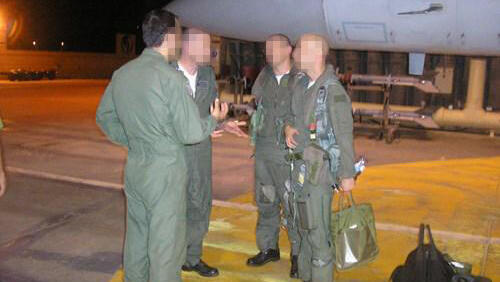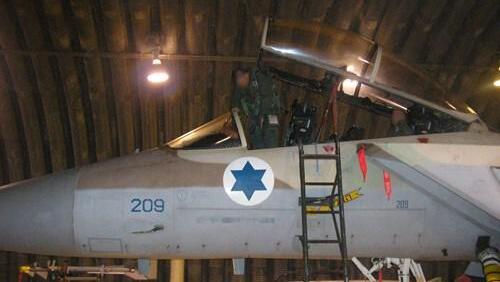The Israeli military on Tuesday released a never-before-seen intelligence document from 2002 warning that Syria may have been attempting to launch a military nuclear program.
The publication comes on the 15th anniversary of Operation Outside the Box — a 2007 strike on a site in Syria's Deir ez-Zor region suspected to be a secret nuclear reactor and the keystone of the country's nuclear ambitions.
3 View gallery


Arial image of suspected Syrian reactor, in Deir ez-Zor
(Photo: IDF Spokesperson's Unit)
“Recently it became known that the Syria Atomic Agency Commission is carrying out (or has carried out) classified projects that were previously unknown,” details the document compiled by the Military Intelligence Directorate.
“The information doesn’t point to an active military nuclear program in Syria, but it does indicate activity in areas that can support the development of such a program and raises suspicions of the beginning of the development of such a program."
Fresh footage published by the IDF Spokesperson’s Unit features the pilots who took part in the strike garbed in jumpsuits and hugging while others were seen sitting inside the fighter jets used in the operation.
In letters sent by then-prime minister Ehud Olmert and then-defense minister Ehud Barak to then-Air Force commander Eliezer Shekdi, the two thanked him for the successful strike deep within Syrian territory.
“This operation holds historical significance which will fortify Israel’s security and deterrence,” Barak wrote in a letter classified as top secret.
3 View gallery


Israeli Air Force pilots before attack on Syria's Al Kibar nuclear reactor
(Photo: IDF Spokesperson's Unit)
The strike on the site, known as Al Kibar, was the result of a series of intelligence, diplomatic, political and military moves spread over long and tense months in 2006-2007, which took place in the Syrian desert, the Mossad headquarters in Israel, the White House, the Prime Minister’s Office in Jerusalem, the Air Force headquarters, and according to some foreign publications, at a number of hotels in several European capitals.
Four F-15 and four F-16 fighter jets took off from Air Force bases in southern Israel and headed northward along the Mediterranean and then broke eastward along the Turkish-Syrian border.
Between 12:40am and 12:53am, a 24-metric ton payload was showered on the Al Kibar reactor which was built with the help and guidance of North Korea while trying to keep it a secret from the rest of the world.
The reactor was razed to the ground, along with Syria's nuclear program, while Israeli forces incurred no losses.
Israel officially acknowledged the strike only a decade later, though foreign press and U.S. officials, who are not bound by Israeli censorship, did not get in line with Israel's self-imposed restraint.
3 View gallery


Israeli Air Force fighter enters fighter jet as he prepares to head out to strike Syria's Al Kibar nuclear reactor
(Photo: IDF Spokesperson's Unit)
U.S. intelligence agencies briefed congress members on their part in the operation as early as April 2008. Some officials in the George W. Bush administration, including the president himself, have referenced the operation in one way or another in books they wrote or during interviews they gave.
Israeli media had to base its coverage on reports by foreign media, which included some detailed exposés and interviews by the New Yorker, Newsweek, Daily Telegraph and Der Speigel, which outlined the moves that preceded the strike.
One report dubbed the strike "Operation Orchard", while another used the term "Operation Arizona" after the code the pilots used before dropping their payload on the reactor.
The Israeli attack on the reactor has proven in retrospect to have a far-reaching effect on the geo-political situation across the entire Middle East, considering Syria has been locked in a bloody civil war for more than a decade during which nuclear arms could have fallen into the hands of radical factions fighting the regime.

